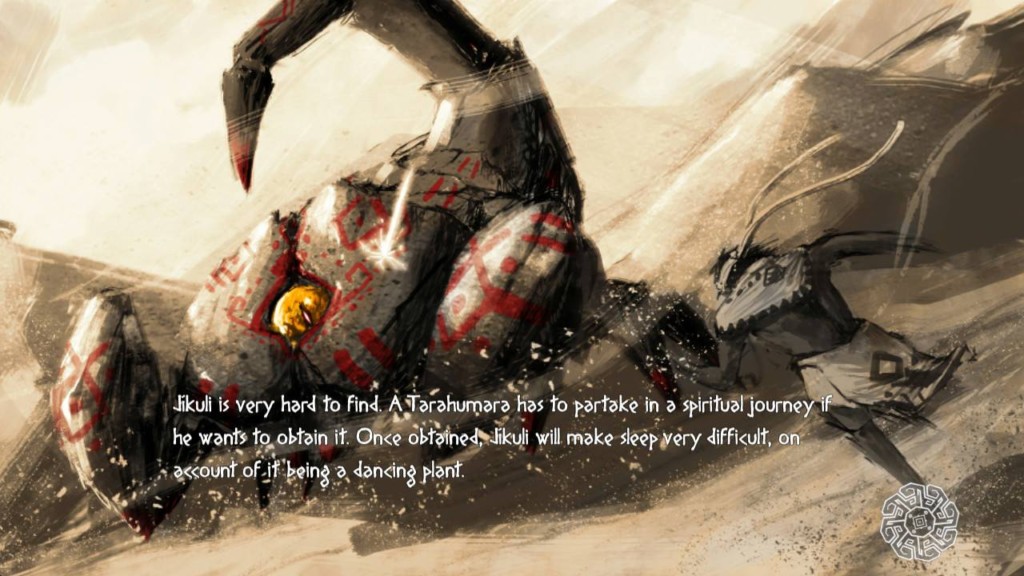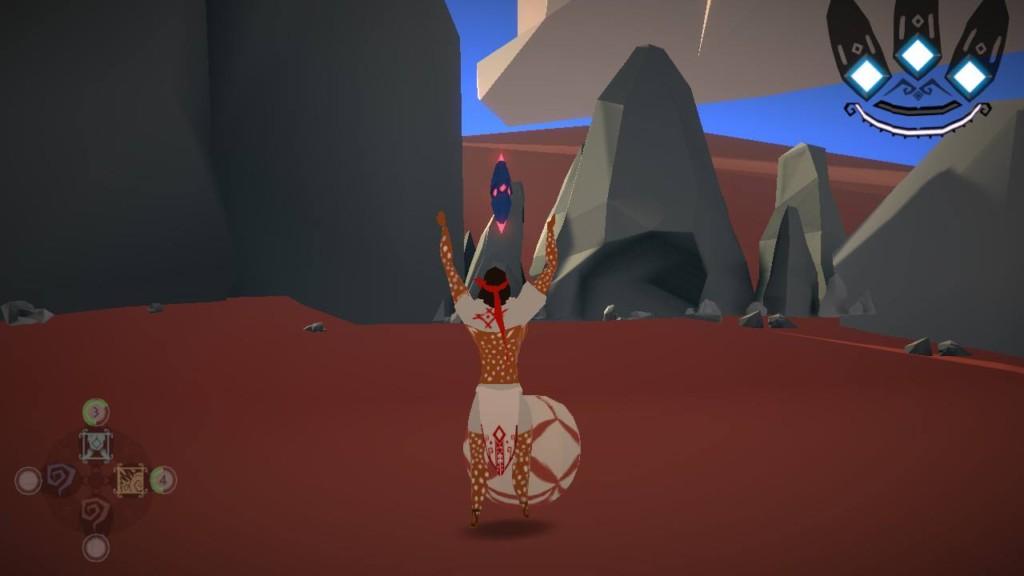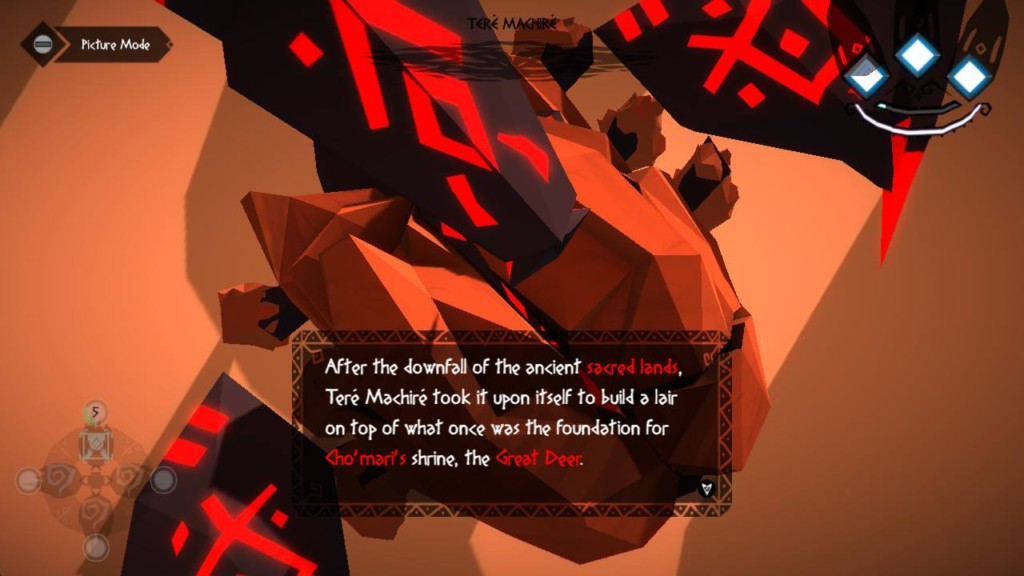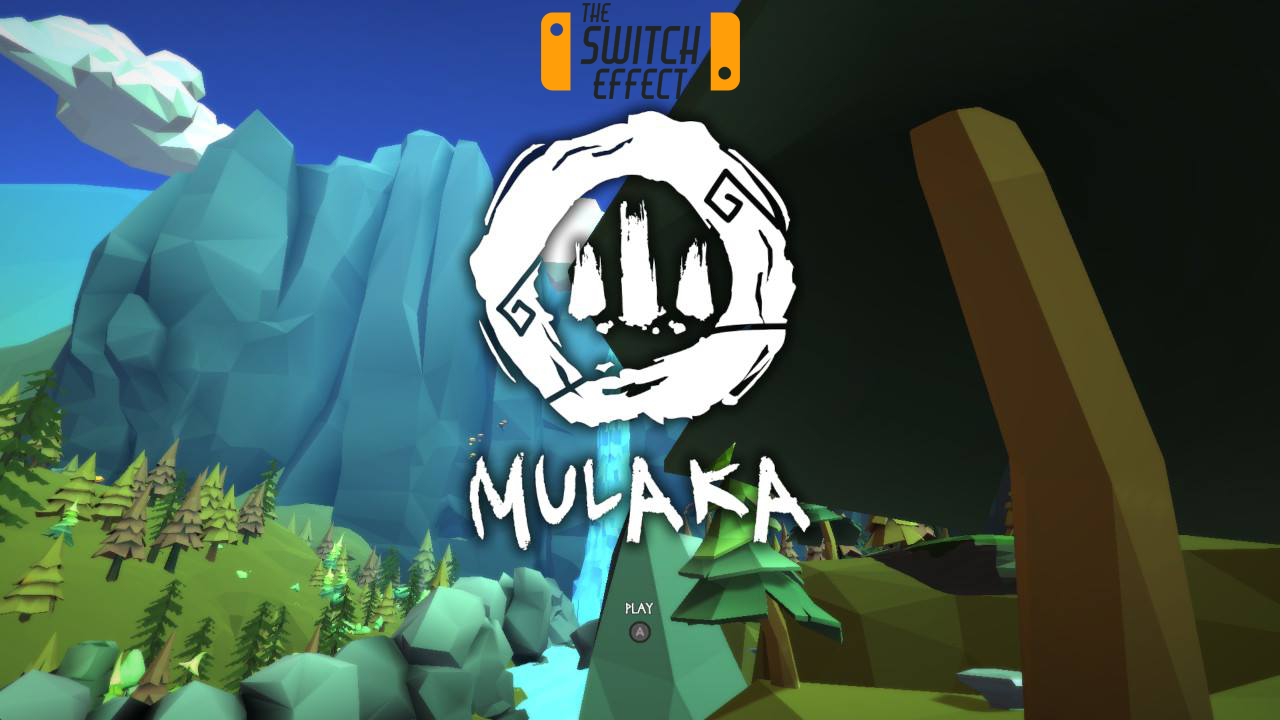[Review] Mulaka – Nintendo Switch

Mulaka
Nintendo Switch
Developer: Lienzo
Publisher: Lienzo
Category: Action, Adventure
Release Date: 03.01.2018
Mulaka for Nintendo Switch is an interesting 3d action adventure title that draws upon an untapped source to provide the lore for its world- the native peoples of northern Mexico, the Tarahumara. You play as a Tarahumara shaman, a class of people known as the Sukuruame Known for their impressive running abilities, this translates into the capability of Mulaka to run without limit simply by holding down the ZR button while trekking around a world whose environments are inspired by the actual lands of the Tarahumara people.
While there is a fair amount of exposition in Mulaka, it surprisingly doesn’t take up much of the actually play time of the game. You learn about the world and the foulness that has come to corrupt it by speaking to the common people found around villages, and beautifully illustrated load screens provide information regarding the flora and fauna that populate Mulaka’s threatened territory. Mulaka must use his abilities as a Sukuruame to overcome the impending corruption, and also calls upon the gods to bless him with their favor to better defeat the vague shadow that falls over the land.

At its core, Mulaka is a very flavorful take on the early action adventure games that we saw on the playstation and n64. While the game does a great job at making the characters and enemies drip with color and ooze charm, the environments’ low polygon appearance makes it relatively bland in comparison. These same environments also suffer the same limitations that we would encounter on the venerable forefathers of 3D console gaming, where there are invisible barriers that prevent us from moving beyond their clear borders. Hitting one of these barriers, or trying to fight against a particularly steep slope of mountain, will send Mulaka into this weird jerky “whoa whoa whoa” animation loop that makes him appear as though he is trying to balance himself on the edge of a rooftop so as not to fall off. This also calls to mind early 3D games, and we are even treated to a few random graphical glitches that place Mulaka inside rocks and finds us colliding with enemies that aren’t quite touching where we expect to be our hitbox to be. With all of this being said, I wanted to get it out of the way because Mulaka truly is a fun, and engaging experience…but it isn’t without its flaws.
Mulaka has a simple premise- each level has a gate that needs to be unlocked in order for you to move on to the next level, which will in turn, have its own gate that also requires you to find three keystones to unlock it. Levels are of a fair size, and there is just the right amount of things to do while wandering around looking for your keystones. You can speak to just about everyone in each of the towns, and they all have something interesting to say about current events. Various plants can be harvested when you run across them, and they even regrow if you hang out for a short amount of time. This is useful because this is how your special items are crafted. A great touch for the game is that crafting is automatic. You generally need to collect a certain amount of a specific plant to make an item (such as a health potion), and collecting that amount will automatically award you that item to be used immediately.

You will find a number of aggressive animals itching for a fight in the game’s levels, and combat is intuitive, but still offers a satisfying amount of strategy. You can weak attack, strong attack, throw your spear, jump, and dodge during combat. I wish that you had the ability to block, though. Once you’ve defeated enough enemies, you get a special finishing move that is activated by pressing ZR and X at the same time. While this move is very powerful, and you can carry it with you indefinitely, I found the button combo to activate it to be either inconsistent, or overly precise. I found myself needing to press the buttons multiple times to get it to activate, and sometimes that was very costly. To add a bit of tension to the fights, you have to actually carry out your full animation to drink a health potion to gain life. Unfortunately, if you are interrupted during the process, you still lose your health potion. As I mentioned earlier, the hit detection isn’t 100%, and that can be bothersome at best. There will also be fights where you are trapped in a circle, and must first defeat the horde, or boss, before progressing. These pit fights are usually what reward you with a keystone, but sometimes they serve as guardians for the switch that reveals the keystone. Sometimes, a magical talking pheasant appears and makes you chase it down before it will give you a keystone or hint. You will also encounter the different gods of your people on your journey, each of which will grant abilities that will prove very useful in your fight to purify the land.
Killing enemies and sometimes knocking over rock piles or market tents will earn you Korima, which can be used to upgrade your abilities from a somewhat hidden old lady. You’ll have to seek her out for yourself, but she is hiding in plain sight, as it were. Just make sure that you remember how to get back to her for later on when you have acquired more Korima. In addition to its simple, but charming world design, Mulaka boasts a pretty killer soundtrack. It uses traditional music from the region as inspiration, and it really fits the atmosphere and game play well.

Mulaka was one of the indie games that I became very excited about when I first learned about its impending release, and I can’t say that I’m disappointed. I may have hyped the game a little much in my own head, but the game is fun. It isn’t without its flaws, but none of them have been game breaking, and I hope to see the developer supporting the game for a bit so that we can get these minor bugs worked out (particularly the inconsistent button press for the finishing move and slightly off hit detection).












